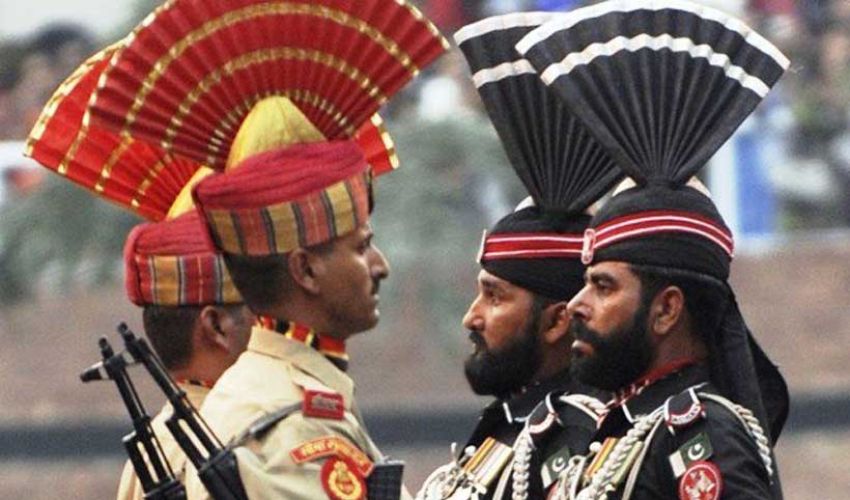A seven-member constitutional bench of the Supreme Court, headed by Justice Aminuddin Khan on Monday resumed hearing an intra-court appeal against the trial of civilians in military courts.
The proceedings saw extensive arguments on the scope of the Army Act, fundamental rights, and the separation of powers between the judiciary and the executive.
During the hearing, Justice Jamal Khan Mandokhel observed that if the purpose of enacting the Army Act was properly understood, “half of the problem will be solved.” Chief Justice of the Bench, Justice Aminuddin, remarked that no prime minister in Pakistan’s history has ever completed a full five-year term, prompting Justice Musarrat Hilali to comment that “no brave prime minister has come who could complete five years.”
PTI founder’s counsel, Uzair Bhandari, argued that even if the Army Act was repealed, the Anti-Terrorism Act remains in force. He contended that when multiple forums exist, it is crucial to determine where the fundamental rights of the accused are best protected.
He also asserted that Article 245 of the Constitution does not grant judicial powers to the military.
Justice Mandokhel questioned whether a court martial was not a judicial proceeding, to which Bhandari responded that while court martial is a judicial function, it applies exclusively to military personnel and not civilians.
Justice Aminuddin then pointed out that a certain category of civilians also falls under the Army Act, raising the question of how to distinguish which civilians should be tried under the Act.
The bench deliberated on Article 245, with Justice Aminuddin questioning how the army could defend its institutions if this article was interpreted as restricting its powers. “If there is an attack on GHQ, should the army wait for a notification under Article 245?” he asked.
Bhandari responded that in cases of immediate threat, the law allows defensive action without formal permission. He cited the Supreme Court’s past ruling in the Liaquat Hussain case, which held that if the military arrests an attacker, the individual must be handed over to civil authorities.
Justice Naeem Afghan posed a hypothetical scenario where military personnel and civilians jointly violated the Official Secrets Act, asking where the trial would then be conducted. Bhandari asserted that in such cases, the Anti-Terrorism Court would have jurisdiction.
Justice Mandokhel reiterated that understanding the rationale behind the Army Act would resolve much of the legal ambiguity. He observed that the Constitution delineates the military’s functions, granting it powers for defense and assistance to the civil government, but does not authorize it to administer justice for civilians.
He further remarked that the judiciary and the executive are separate under the Constitution, and questioned whether a military court, where the complainant is also part of the executive, could act as an impartial adjudicator.
Justice Hassan Azhar Rizvi shifted the focus to the events of May 9, when military installations were attacked. Addressing Bhandari, he asked whether PTI’s founder had condemned the incidents.
The lawyer responded that the PTI chief had condemned the events in his written submissions and held that those responsible should face punishment.
However, he clarified that condemnation did not imply acceptance of the government’s official position on the matter.
As the hearing progressed, Justice Muhammad Ali Mazhar noted that if the validity of military courts for soldiers was accepted, then the matter extended beyond Article 175 of the Constitution, which deals with the separation of powers.
He remarked that personal views could align with those of Justice Muneeb Akhtar, who has previously ruled on similar issues.
Justice Jamal Mandokhel also questioned whether a prime minister could remain in office beyond his fixed term, to which Bhandari responded that a prime minister elected for five years cannot stay for six.
Towards the end of the session, Justice Aminuddin remarked that since the outset of the case, the responsibility of deciding such a critical issue had been placed on the judiciary. Justice Mandokhel suggested that the court should focus on interpreting the Constitution rather than being swayed by external pressures.
The hearing was adjourned until Tuesday, with Bhandari set to continue his arguments.



























